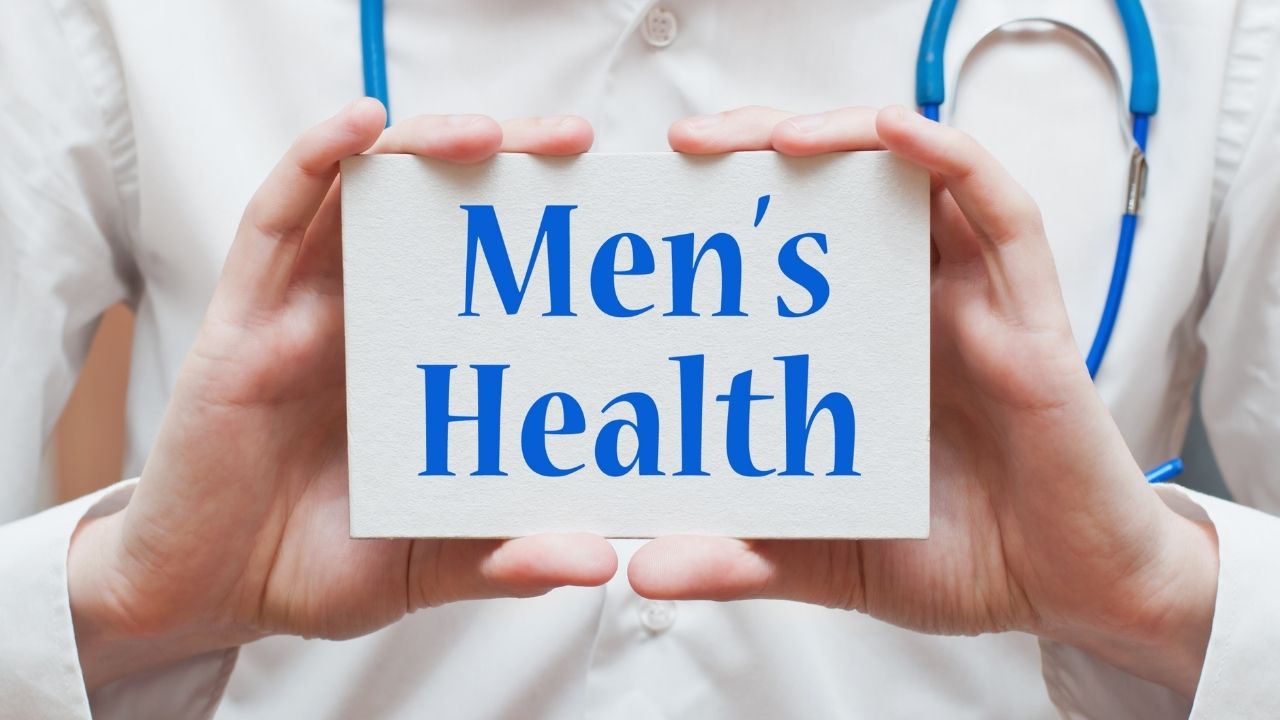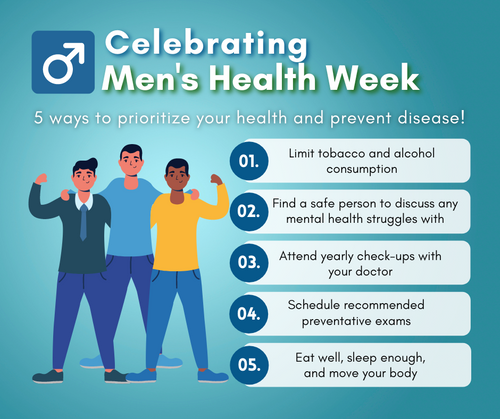The Importance of Men’s Health Common Concerns, Maintaining a Healthy Lifestyle, and More

Men’s health encompasses a wide range of topics related to the well-being of men. From physical to mental health, preventative care to treatment, there are many important aspects for men to consider when it comes to living a healthy lifestyle. This article will explore some of the key areas of focus, challenges, and solutions surrounding men’s health.
The Importance of Men’s Health
Men’s health is just as essential as women’s health when it comes to overall wellness. However, it’s often overlooked or not prioritized to the same degree. Paying attention to aspects of health specific to men provides numerous benefits:
Improved Quality of Life
Making men’s health a priority can significantly enhance quality of life in the present and future. Proactively addressing any health concerns, maintaining preventative care, following a nutritious diet and exercising regularly all enable men to feel their best day-to-day. In addition, these measures support longevity and reduce risk of disease down the road.
Increased Life Expectancy
Life expectancy for men has increased over the decades, but still trails behind women. Closing this gender gap and adding healthy years to men’s lives involves improving awareness, screening and early detection for common diseases impacting men. When health issues are caught early on, outcomes are significantly better.
Better Mental Health
Mental health conditions like depression and substance abuse impact men at high rates. Reducing stigma around these issues, ensuring adequate access to support resources and encouraging open dialogues are all ways to uplift the mental health of men everywhere.
Strengthened Relationships
When men prioritize self-care, they’re better equipped to show up fully for their partners, families and communities. Making personal health a priority demonstrates self-respect and self-love to those who matter most.
Overall, acknowledging the importance of men’s health helps men thrive physically, mentally and socially – ultimately creating benefits for society as a whole.
Common Health Concerns for Men
Men face a unique set of health challenges and risks compared to women. Being educated on common conditions men are predisposed to developing enables earlier detection or prevention. Some of the most prevalent health concerns include:
Heart Disease
Heart disease is the leading cause of death for men in the United States. Contributing risk factors like high blood pressure, high cholesterol and obesity are extremely common but manageable with healthy lifestyle changes and medical treatment if needed.
Type 2 Diabetes
Developing type 2 diabetes is another highly prevalent condition, particularly for men who are overweight. Sustained high blood sugar levels can cause serious complications if left unmanaged. Staying active, losing excess weight and eating well are all paramount for reducing diabetes risk.
Mental Illness
Mental health conditions like depression and substance abuse are widespread among men, but social stigmas often prevent them from seeking help. It’s critical that access to mental health support and treatment is destigmatized so men feel comfortable pursuing these resources.
Sexual Health Issues
Sexual health troubles like erectile dysfunction, low testosterone and STDs occur commonly but inconspicuously among men. Normalizing open conversations around these topics is necessary to improve education, screening and early intervention.
While concerning, many of the most common health issues faced by men today are manageable through healthy lifestyle choices, preventative screening and proactive medical care as needed. Prioritizing men’s health helps mitigate risks over the long run.
Maintaining a Healthy Lifestyle for Men
Adopting healthy lifestyle habits is paramount for men’s health, helping ward off chronic disease and preserve wellness long-term. Several pillars provide the foundation:
Nutritious Eating Patterns
Following heart-healthy dietary patterns focused on lean proteins, fiber-rich plant foods and healthy fats supports a trim waistline, optimized energy levels and reduced cardiac risk factors. Limiting processed items high in salt, sugar and saturated fats also helps manage conditions like diabetes or high cholesterol.
Regular Physical Activity
Getting adequate exercise is vital – aiming for at least 150 minutes per week of moderate activity along with muscle-strengthening twice weekly. Physical activity keeps weight under control and reduces likelihood of obesity-related conditions. It also benefits mental health, mood and sleep quality.
Restful Sleep
Most men need 7-9 hours of quality sleep per night for optimal health, yet many struggle with disorders like sleep apnea or insomnia. Prioritizing sufficient sleep quantity and quality helps regulate hormones, appetite, brain function, immunity and so much more.
Preventative Care
Routine check-ups, age-based health screening tests, dental cleanings and annual flu shots constitute simple but essential preventative care. Developing relationships with trusted healthcare providers ensures issues get detected and managed early on.
Commitment to core healthy lifestyle pillars gives men the best shot at well-rounded wellness in both body and mind. Small, sustainable changes over time yield huge dividends.
Mental Health and Well-Being for Men
Mental health and wellness are foundational yet underaddressed aspects of men’s health. Just like physical health, tending to mental and emotional needs warrants ongoing care and attention. Main areas men should focus on include:
Managing Stress
Unmanaged chronic stress takes an immense toll in areas like cardiovascular health, metabolism and immunity. Developing healthy coping outlets to mitigate stress like exercise, meditation, social connection and adequate sleep helps avoid these impacts. Don’t hesitate to seek counseling for extra support if excess stress becomes unmanageable.
Watching for Depression
Depression amongst men often flies under the radar, masked by outward stoicism or numbed by self-medication with drugs or alcohol. Look out for symptoms like fatigue, irritability, changes in sleep, appetite or libido, loss of interest in hobbies and suicidal ideation. If you observe these in yourself or a loved one, pursue mental health support immediately.
Maintaining Social Ties
Social connectivity is strongly tied to well-being in both women and men. But societal norms and stigma unfortunately discourage men from fostering social bonds or admitting loneliness at times. Proactively putting effort into meaningful friendships and community prevents isolation and benefits self-worth.
Prioritizing mental health helps men enjoy balanced, positive and fulfilling lives. Don’t hesitate to leverage resources or seek help around emotional needs just as you would for physical ones.
Preventative Measures for Men’s Health
An ounce of prevention is truly worth a pound of cure when it comes to men’s health. Building a few simple habits provides immense protective benefits over the years:
Cancer Screenings
Various cancer screening tests allow for early detection and life-saving treatments if abnormal tissue growth is found. Men should undergo colon cancer screening beginning at age 45, while older men need routine prostate cancer blood tests and skin checks too. Catching cancer early makes a world of difference.
Vaccinations
Immunizations are equally crucial, helping men avoid preventable infections that may lead to complications like pneumonia, liver disease or cancer. Make sure tetanus shots, annual flu vaccines, shingles vaccines at age 50+ and early COVID-19 boosters are up to date. HPV vaccination is also smart to reduce cancer risk.
Safe Sex Practices
Practicing safe sex prevents transmission of HIV, viral hepatitis and other STDs between partners. Correct condom use provides excellent protection against these infections which often lack visible symptoms at first. Routine STD/HIV testing ensures early detection as well for the minority of breakthrough cases.
An ounce of prevention goes a tremendously long way for defending men’s health. Minimal efforts yield maximal payoffs by spotting issues early or avoiding disease altogether.
Nutrition and Exercise for Men’s Health
Diet and exercise constitute primary pillars for preserving men’s health from the inside out. They help maintain healthy body composition and reduce cardiovascular risk. Key focus areas include:
Threat to men. Emphasize diets rich in vegetables, fruits, whole grains, legumes, nuts, fish and vegetable oils.
Limit red meats, processed foods, salt, alcohol and added sugars. Meeting nutrient needs while controlling calories, cholesterol, triglycerides and blood pressure is key.
Strength Training
Building lean muscle mass through resistance training provides metabolic benefits helping manage weight and blood sugar levels. It also allows men to maintain strength, mobility and injury resilience as they age. Aim for at least two full-body strength sessions per week.
Active Stress Relief
Exercise is equally potent for mental health – it alleviates anxiety, relieves stress and elevates mood via endorphin release. This makes physical activity invaluable for mental wellness. Any heart-pumping sport will do – prioritize ones you enjoy to make it sustainable long-term.
Nutrition and fitness synergize to protect men’s physical and mental health across the lifespan. Small incremental efforts cultivate major positive change over years.
Men’s Health Screenings and Check-Ups
Routine health exams allow clinicians to assess wellness, screen for common diseases and customize prevention plans to each patient. Key components of men’s check-ups include:
Physical Exam
Doctors measure vitals like blood pressure, listen to your heart and lungs, and examine your skin, lymph nodes, abdomen and genitals for signs of abnormalities. They’ll also discuss medical history, medications, symptoms, lifestyle and mental health.
Lab Work
Blood and urine tests evaluate biomarkers like cholesterol levels and kidney/liver function to gauge disease risk and detect any pathology. Your doctor may run additional tests like cardiac risk panels, nutrient levels or diabetes screening based on age and risk factors.
Immunizations
Health providers confirm vaccine status and administer any missing shots at annual exams, providing powerful protection against infections like flu, tetanus, shingles or HPV viruses over time.
Counseling
Clinicians offer tailored medical advice around lifestyle habits, mental health, sexual health, cancer screening options and medications based on the patient’s unique considerations.
While no one looks forward to seeing the doctor, annual check-ups and lab work are instrumental for monitoring men’s health and catching issues early when they’re most treatable. Being proactive saves lives.
Addressing Sexual Health for Men
Sexual function and satisfaction contribute greatly to men’s quality of life and self-image. However, intimate health issues often go undiscussed out of embarrassment or shame. The first step is acknowledging that challenges with desire, performance, orgasm, pain or fertile health are extremely common, even amongst healthy men. Speaking openly with medical providers allows for proper diagnosis and effective solutions tailored to the individual. Treatments ranging from lifestyle changes to medications to devices/implants are available for many sexual health concerns. Destigmatizing and proactively addressing intimacy issues is liberating for both physical and emotional health.
Supporting Men’s Health at Every Age
Since disease risks and health priorities shift across the lifespan, target prevention measures to each stage of life. Core focus areas include:
Childhood
Establishing active lifestyle habits and a nutritious diet from early on helps children grow into healthy adults. Certain immunizations are also critical during the school-age years.
Young Adults
Mental health, testicular cancer checks, safe sex and responsible substance use should be points of emphasis for men in their teens and twenties to set the stage for later wellness.
Middle Age
By 40, more vigilant cancer screening, heart health evaluation, diabetes prevention and prostate care kick in. Brain and gut health also grow in importance during this busy family/career phase.
Seniors
Advancing age increases vulnerability of conditions like cardiovascular disease and cancer, making healthy lifestyles and preventative screening/treatment ever more vital for longevity. Priorities like bone, joint, brain, eye and dental health come to the forefront as well.
While specifics evolve over years, making self-care and medical care a priority remains constant throughout men’s ever-changing health journeys.
Unleashing the Secrets of Zac Efron’s Men’s Health Routine
Breaking the Stigma Surrounding Men’s Health
Progress reducing stigma in realms like mental health demonstrates that cultural attitudes can positively shift over time. Further eroding shame, judgment and silence surrounding all aspects of men’s health remains imperative going forward.
Changing Cultural Norms
Redefining antiquated notions of masculinity that discourage vulnerability or care-seeking is necessary to promote open dialogues around men’s medical and emotional needs. Enabling healthier perspectives will motivate self-advocacy.
Expanding Access
Ensuring men of all ages, ethnicities, incomes and orientation feel welcomed to leverage vital health resources without fear of discrimination will save lives. Equality of access must improve.
Owning Your Journey
At the individual level, we must give ourselves permission to prioritize self-care unapologetically. Tuning out external expectations and judgment is essential to take control of your own health destiny.
Dismantling barriers preventing men from proactively addressing medical and mental health will enable earlier intervention, better outcomes and longer lives for men everywhere.
Conclusion
Men’s health spans everything from nutrition, exercise and screenings to sexual function, stress management and conditions like heart disease. While risks exist, tremendous power lies in our hands to cultivate wellness through informed lifestyle and healthcare choices. Prioritizing prevention and timely treatment when needed gives men the best opportunity to live full, vibrant lives at every age. Here’s to embracing healthier attitudes and actions around self-care!















